How to Make an Insurance Claim Against Someone Else
Getting into a car accident is a frightening experience that puts a lot of people at risk: you, your family or passengers, the other driver, and anyone else on the road at the time. After the moment of impact, however, there are usually plenty more headaches to come– filing an insurance claim can be pretty stressful and confusing.
Plus, if you’re found to be at fault for the accident, it’s possible that your insurance premium will increase. That means you’ll ultimately have to pay more money per month for auto coverage.
Practicing safe and responsible driving is, of course, the best way to avoid getting into accidents. But even if you’re the safest driver in the world, you’ll still have to contend with other people on the road– which means you may have to deal with an accident that’s another driver’s fault.
What should I do when I get into a car accident?
Obviously, it’s preferable to avoid getting into accidents altogether. Since that’s not always possible, it’s good to know exactly what to do in the event of an accident, no matter how minor.
Under Arkansas law, any car accident that results in death, injury, or property damage must be reported to law enforcement officials.
Even if no one is injured in a car accident, or even if the property damage is minimal, it’s important to call 911 as soon as possible. Calling a police officer to the scene means that there is a record of the accident, and the officer will typically give their opinion about who is at fault for the accident.
After calling 911, you must exchange insurance and contact information with the other driver. This will help both of you get everything sorted out with your respective insurance companies.
However, keep in mind that you should avoid admitting fault at all costs. For example, don’t say “I’m sorry” to the other driver. Although it may seem polite, saying “I’m sorry” can be considered an admission of fault, especially if you say it in front of the police officer. Don’t say anything that might imply you’re at fault for the accident, even if you believe that you are.
Finally, you should take as many photos as you possibly can at the scene of the accident. Be sure to include damage to both vehicles, and the context of the accident if something like adverse weather was a factor.
When should I file an insurance claim against another person?
After the police have left the scene and all insurance and contact information has been exchanged, it’s time to deal with the insurance company.
It’s important to know the insurance laws in your state. Arkansas is considered an “at fault” state– which means that whoever is responsible for the accident is also responsible for covering the damages caused by the accident.
Only 12 states in the US are considered “no fault” states: Utah, Pennsylvania, North Dakota, New York, New Jersey, Minnesota, Michigan, Massachusetts, Kentucky, Kansas, Hawaii, and Florida. In those states, your car insurance will pay the costs of the accident (within your policy), regardless of who caused the accident.
In Arkansas, once you have the other driver’s insurance information, you’ll need to call their insurer to report the accident. This claim will be considered a “third-party” claim– you’re a “third party” after the driver and their insurance company.
Although the process of reporting the accident to the other driver’s insurance company may seem straightforward, they most likely won’t be eager to pay you the money you’ll need for repairs or medical treatment.
Instead, they will want to thoroughly investigate the incident to make sure that their client truly is at fault. This is when having official documentation from your 911 call, in addition to the photos you took at the scene of the accident, really comes in handy.
What if the other driver’s insurance doesn’t pay?
It’s always possible that the other driver doesn’t have enough insurance coverage for the accident. In this situation, they’re considered an “underinsured driver”. And if their lack of proper insurance coverage means that you’re not getting the money you need for repairs, it might be time to sue them for the remainder of the costs.
This is when seeking legal counsel becomes necessary. An experienced insurance lawyer can help you navigate the process of obtaining the money you’re owed so that you can get your car repaired, seek necessary medical treatment, and get on with your life.
At the Digby Law Firm, we’re prepared to fight for you, ensuring that you receive the money you deserve. Schedule a consultation or give us a call today to get started.
How to File for a Divorce in Arkansas: Should It Be Done During the Holidays?
Filing for divorce is a major life decision that involves legal, financial, and emotional considerations. For those in Arkansas, understanding the specific steps in the divorce process – and whether the holiday season is the right time to proceed – is crucial. Timing...
Insights on Property Division in High-Asset Divorce
When substantial wealth is involved in the dissolution of a marriage, an already complex process becomes even more intricate. The complexities of property division in high-net-worth divorces can seem intimidating, but drawing insights from experienced professionals...
Understanding child custody and visitation rights in divorce cases
Divorce is an emotionally challenging process, especially when children are involved. Having a good understanding of child custody and visitation rights can be invaluable for parents attempting to navigate the intricacies of a divorce case. We’d recommend going into...

